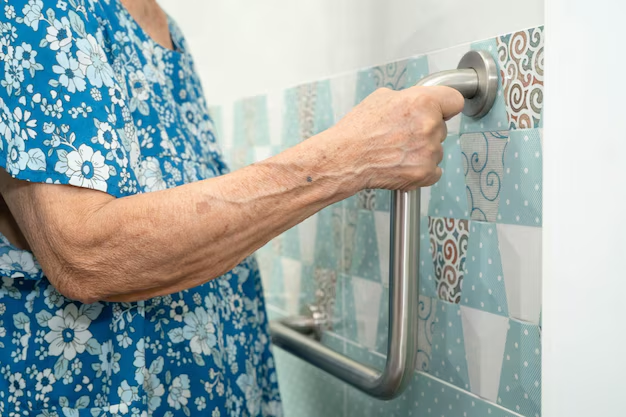Your Guide to Will Medicare Help Pay For a Walk-in Shower
What You Get:
Free Guide
Free, helpful information about Medicare Insurance and related Will Medicare Help Pay For a Walk-in Shower topics.
Helpful Information
Get clear and easy-to-understand details about Will Medicare Help Pay For a Walk-in Shower topics and resources.
Personalized Offers
Answer a few optional questions to receive offers or information related to Medicare Insurance. The survey is optional and not required to access your free guide.
Is Medicare the Key to Affording a Walk-In Shower? Here’s What You Need to Know
The prospect of installing a walk-in shower can be transformative for those who want to maintain their independence, especially as they age. But many wonder, will Medicare cover the cost of a walk-in shower? The short answer is typically no, but there are ways to navigate these waters.
Understanding Medicare's Coverage Limits
Medicare is primarily designed to cover medically necessary services and equipment. While it does provide aid for certain items and modifications, such as durable medical equipment (DME), walk-in showers do not usually fall under this category. Medicare Part B is known for covering DME like wheelchairs and walkers when prescribed by a licensed healthcare provider. However, it does not cover home modifications like bathroom redesigns.
Exploring Medicaid and Other Avenues
If Medicare falls short, Medicaid might offer some help. Medicaid differs by state and may provide assistance for home modifications under the umbrella of long-term care benefits, including retrofitting your bathroom with a walk-in shower. Review your state’s Medicaid waiver programs for specifics on what's available in your area.
Veteran Benefits and State Assistance Programs
For veterans, the Veterans Affairs (VA) Medical Centers may have programs specifically designed for home modifications. These programs can cover modifications such as walk-in showers if they are deemed medically necessary.
State governments might also have Aging and Disability Resource Centers offering aid for independent living, which can include essentials like bathroom adaptations. Be sure to explore what your state offers in terms of financial support for home health accessibility improvements.
Financial Assistance Options
If you're not eligible for government assistance, consider looking into home equity loans or reverse mortgages for funding. These are valuable options, especially when no direct assistance is available to cover the modification’s costs. In addition, some nonprofit organizations can offer grants for those who qualify, allowing for home modifications for better accessibility.
Crossover into Financial Solutions
For those navigating tight financial situations, additional credit solutions might help maintain cash flow while waiting for assistance decisions. Credit cards designed for home improvement purchases, for instance, sometimes offer 0% APR for initial periods, helping manage costs without immediate financial strain.
Educational Grant Opportunities
Educational grants and courses can empower homeowners by teaching the basics of budgeting and managing funds for significant expenditures like home modifications. Understanding these elements can better position individuals to take control of their financial future and make informed decisions about borrowing for home improvements.
Embrace these resources diligently, and the dream of a more accessible home could become a reality without compromising your financial health.
Quick Reference Guide to Assistance Options:
- ✅ Medicaid Waivers: State-dependent; may cover home mods, including walk-in showers.
- 🇺🇸 Veterans Benefits: Potential coverage through VA modification programs.
- 🌟 State Assistance Programs: Check local Aging & Disability Resource Centers.
- 💳 Credit Solutions: Specialized home improvement credit cards or loans.
- 📚 Educational Grants: Accessible courses on budgeting and financial planning for informed decision-making.
Navigating the maze of financial aid can be overwhelming, but knowing where to turn and what options are available can ensure that your path to a safer and more accessible home is within reach.
What You Get:
Free Medicare Insurance Guide
Free, helpful information about Will Medicare Help Pay For a Walk-in Shower and related resources.

Helpful Information
Get clear, easy-to-understand details about Will Medicare Help Pay For a Walk-in Shower topics.

Optional Personalized Offers
Answer a few optional questions to see offers or information related to Medicare Insurance. Participation is not required to get your free guide.


Discover More
- Am I Elgible For Medicare
- Am I Enrolled In Medicare
- Am I Qualified For Medicare
- Are Adult Diapers Covered By Medicare
- Are Chemotherapy Drugs Covered By Medicare Part d
- Are Colonoscopies Covered By Medicare
- Are Covid Tests Covered By Medicare
- Are Cpap Machines Covered By Medicare
- Are Cpap Supplies Covered By Medicare
- Are Dental Implants Covered By Medicare
